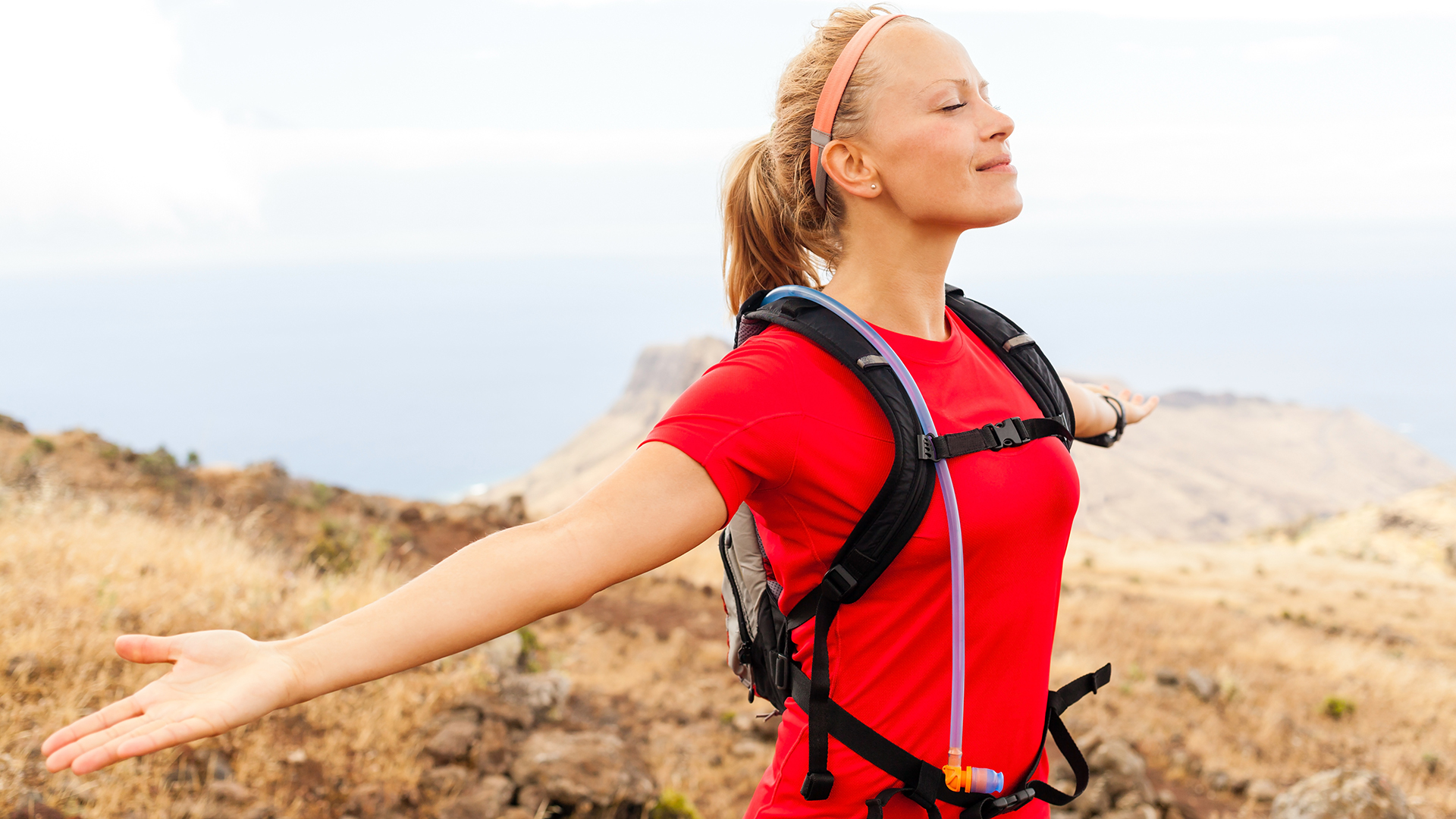
Your muscles are a bit like modeling clay. Imagine taking some clay straight from the fridge and trying to stretch it. What happens? It snaps. Now mold it in your hands, letting it get warm and pliable, then stretch it. Now it stretches like a dream! No snapping.
Think of your muscles in the same way and you will never again miss your warm-up – something that both reduces your risk of injury and preps your body to perform at its best. A warm-up is less necessary before your longer, easy-paced runs because the steady start will allow you to ease into the run naturally, but for fast sessions like hill reps and tempo runs, it’s essential.
Ellie Greenwood, ultra athlete and coach at Sharman Ultra Endurance Coaching says, “A dynamic warm-up is key to help prevent injury and also ensure you start your run feeling more mobile and fluid. With even a short warm-up you’ll run more smoothly and feel better.”
Eight-minute warm-up routine
Start raising your pulse and mobilizing the joints and muscles you will be using on your run with around 30 seconds each of the following mobility drills, interspersed with approximately 30 seconds of jogging on the spot. If you’re in a group prior to a club run or speed session, gathering in a circle and following the leader is a fun way to warm up with the heel kicks, knee raises, elbow to knees, and jumps. You can then line up in relay teams for the skipping and bounding, then spread out to work on ankle circles and clockwork ankles.
Finally, finishing on fast feet makes everyone feel ready to run. You can also incorporate these five-minute mobility moves into a longer warm-up, combining them with a steady one-two mile jog to the bottom of a slope for hill reps, around a track before a speed session or before parkrun to get ready for a PB effort.
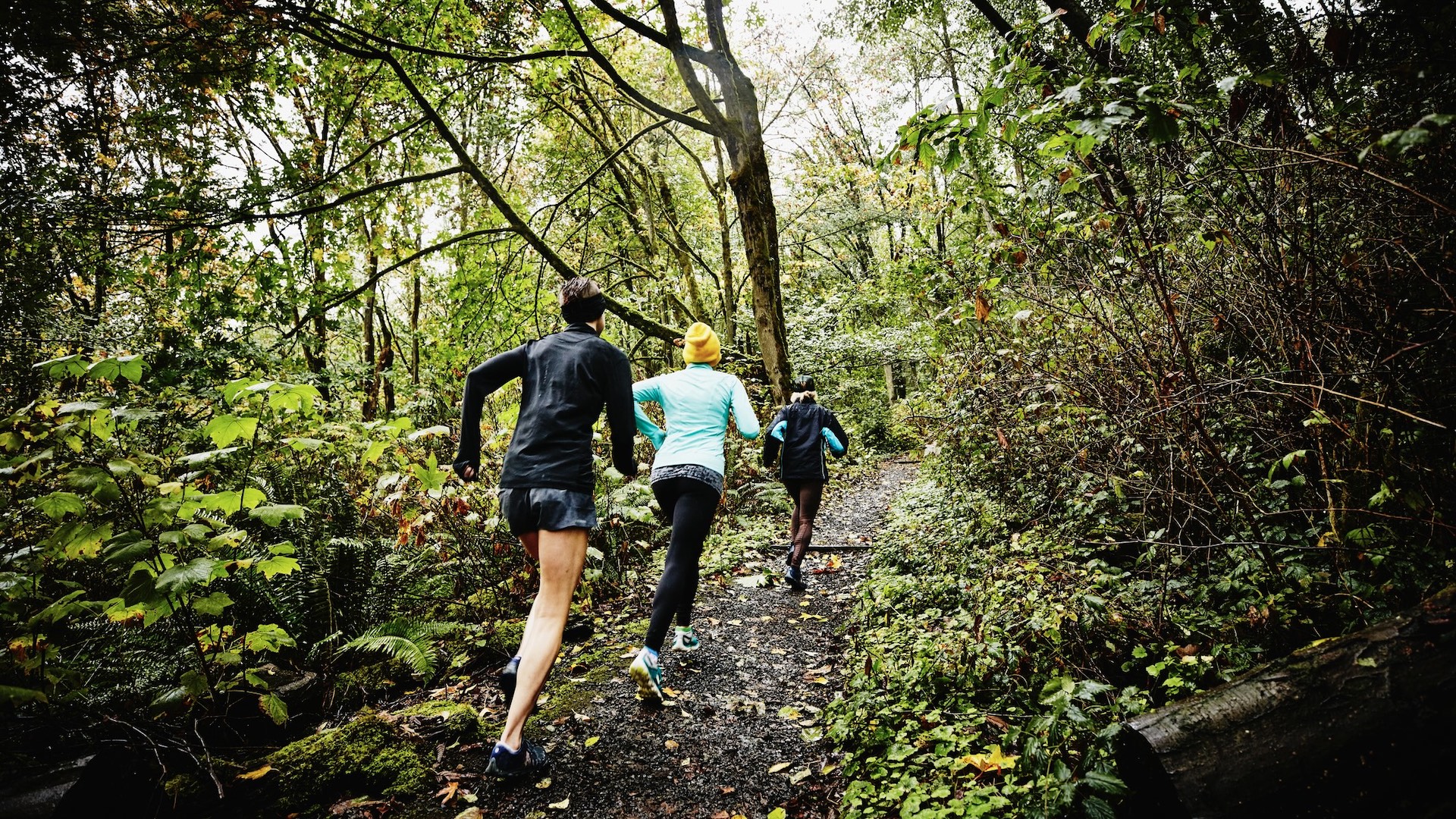
1. Heel kicks
Place the backs of your hands on your bum cheeks and kick alternate heels back and upwards to meet them, hopping up and down on the spot or traveling forwards as you wish.
2. Knee raises
Put your hands out in front, palms down and raise alternate knees up high, to 90 degrees if you can, to meet them. Again, you can do this on the spot or moving forwards.
3. Elbow to opposite knee
Wake up the brain as well as the limbs with some coordination and mobilize the core with a twist in this move. Lift alternate knees to meet their opposite elbow, on the spot first to get the hang of the movement, then walking forwards, then jumping forwards as well if you can manage it! Be careful to only make gentle contact between the knee and elbow, otherwise you risk bashing your funny bone on your knee cap.
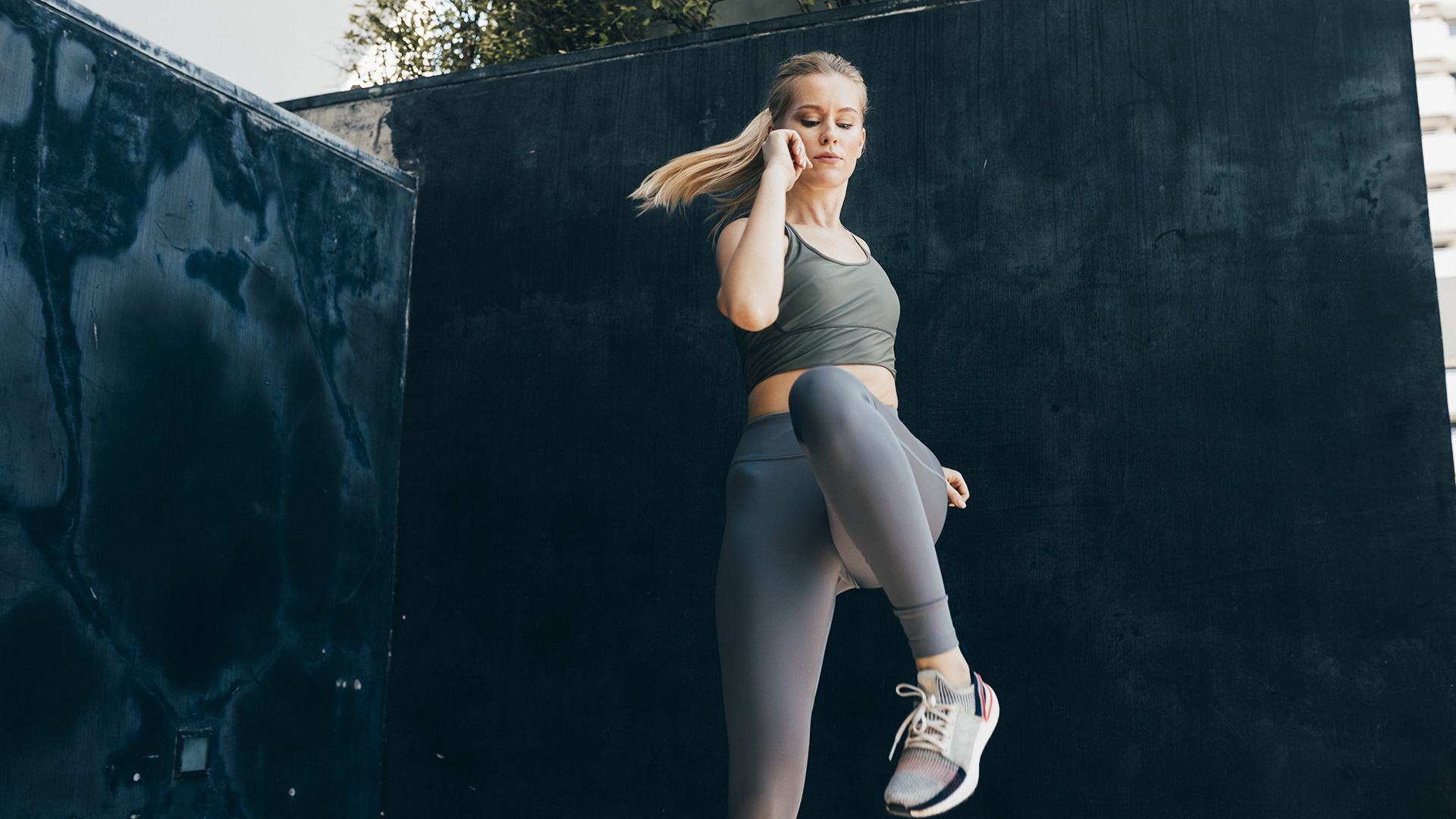
4. Random jumps
While jogging along, jump up as high as you can, then touch the ground, then jump left as far as you can, then touch the ground, then jump right as far as you can, then touch the ground. This is fun for a group in a big circle with one person calling out which way to jump, mixing up the jumps and ground touches like a kids’ party game, then trying to catch people out. Just watch out for jumping into each other!
5. Skipping
You might have done this as a kid and this one is easier while traveling forwards. Enjoy bouncing upwards as high as you can with each skip and drive with opposite arm to leg to boost your bounce. Try not to think too much about which arm goes with which leg and the swing will come naturally.
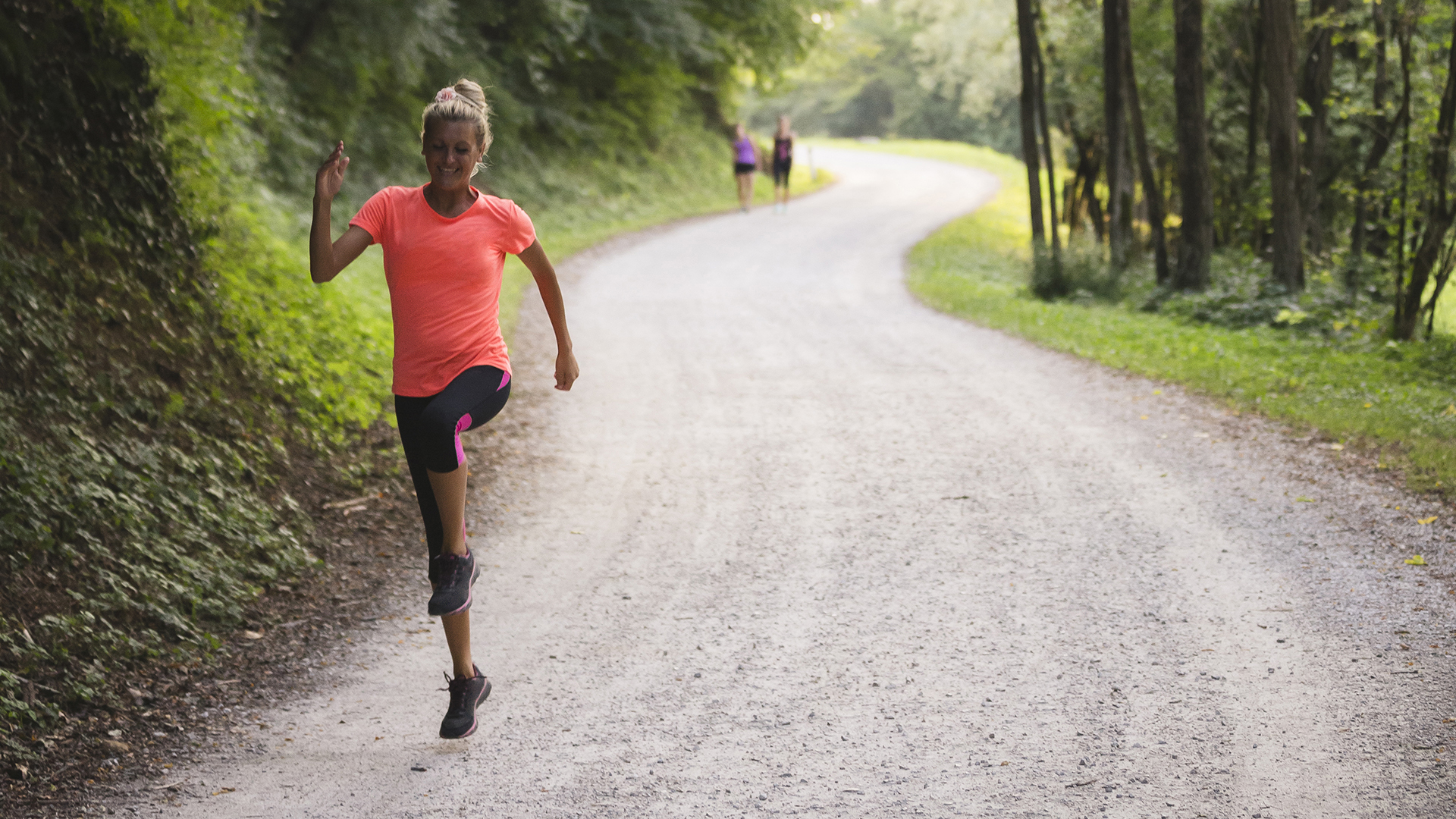
6. Bounding
A little like skipping, but this time try to leap forwards horizontally as far as you can with the leading leg stretched out in front to really wake up those legs and test their elastic rebound. Again, it’s opposite arm to leg as you drive the arms to support the move – but don’t overthink it, to allow the swing to fall naturally.
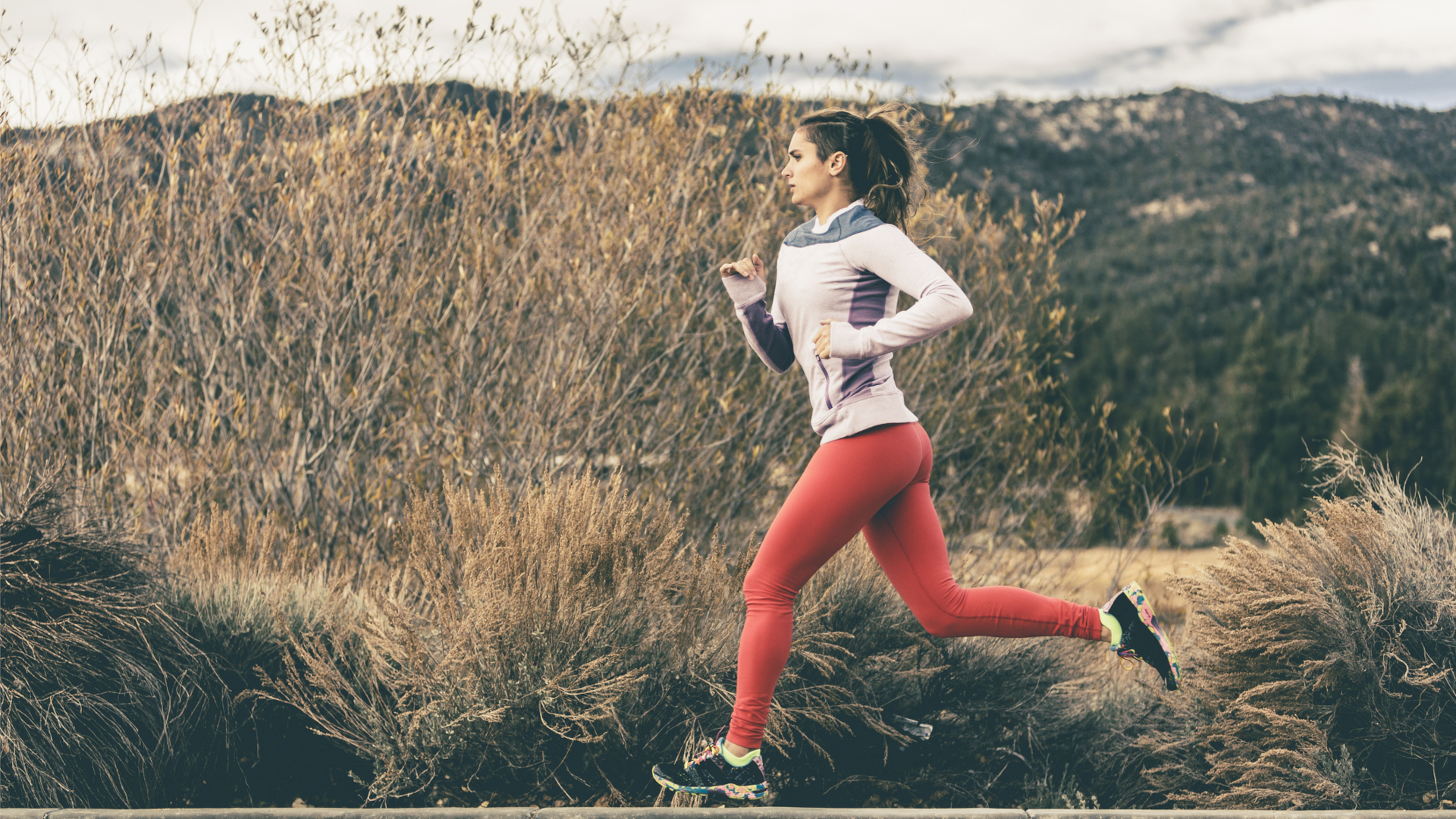
7. Clockwork ankles
Imagine you are standing in the center of a clock face on the ground with 12 at the top, three to the right, six at the bottom and nine to the left. With feet together at first, jump around the clock in these four positions, three times clockwise, three times anti-clockwise. If you don’t have any ankle issues, you can do this move on the left foot, then the right foot. This not only warms you up but is also great for building ankle strength and stability for trail running. It can be used as part of a strength workout, too.
8. Fast feet
Run on the spot quickly with quick, light, fast feet. Start at a moderate speed for 10 seconds, speed up slightly for 10 seconds, then count down from 10 seconds while doing an all-out sprint as fast as your feet can go. Now you’re raring to go for your run!







